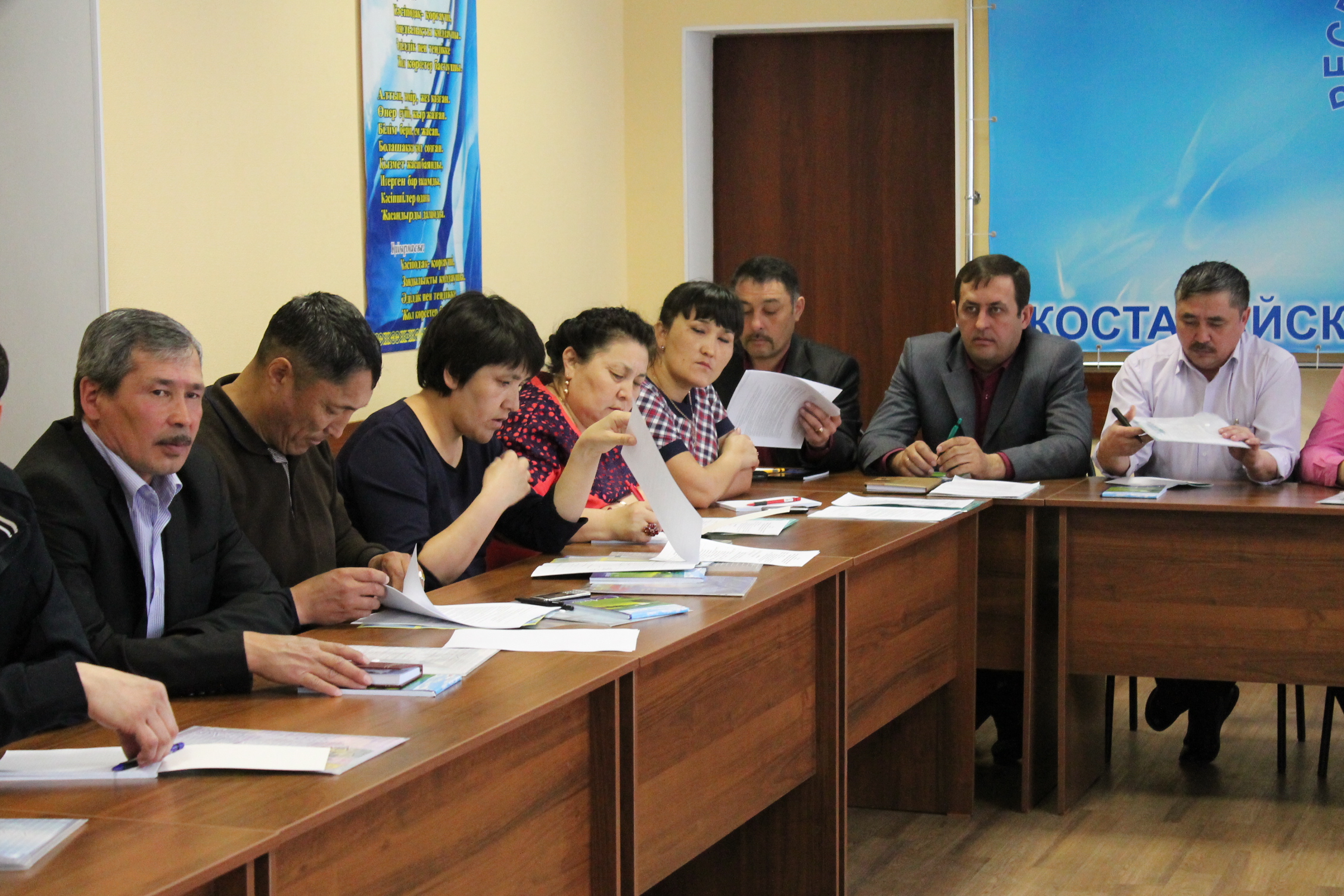Trade union movement in Kazakhstan
Published:
In 2007 the Central Asia Consortium Project coordinated by EI/ETUCE was launched with a view to promote changes in teachers trade unions in Central Asia from government functionaries to more democratic, independent, transparent, strong and sustainable organisations. The key objectives of workshops amongst others are to create good governance and transparency at all levels of organisation; to effectively address the problems of education in the era of market economy and decentralisation; to train the leaders to deal with the local government; to promote greater participation of women and young leaders in the decision-making process. The workshops provide the participants with the awareness that the trade union movement has a wide scope of responsibilities and functions. Participants are also taught to identify problems in education and how to pursue them with the relevant authorities. The percentage of women participants in all the programmes is very high.
The Trade Union of Education and Science of the Republic of Kazakhstan (KTUESW) came into existence more than 90 years ago and brings together education staff of preschool, primary, secondary, VET and higher education, including researchers and students. On the whole, the trade union represents 540,000 members.
In 2014 the Kazakh government adopted a new law on "trade unions". Aliya Abieva, KTUESW International Secretary confirms that the law provides trade unions with many opportunities According to her, the key points of the new legislation are the structuring of the trade union movement and a clear delimitation of responsibilities of territorial and sectoral trade unions. The new legislation makes provisions for trade unions to become involved in the development of regulatory legal acts. Thus, KTUESW has now the possibility to take influence on legal acts of the Education Ministry that regulate the procedure of certification for teachers and which determine deadlines and training procedures, working hours and hours of rest. The law is intended to strengthen the Kazakh social dialogue system, the so-called system of 'social partnership', as one of the main tools to overcome the antagonistic contradictions between employers and employees."
In Kazakhstan the 'social partnership' is a system of relationships between employees (staff representatives/trade unions), employers (employer representatives) and governmental authorities aimed at ensuring reconciliation of their interests in the matters of regulating labour, social and economic relations. Among the main objectives of 'social partnership' feature for example setting up of an effective regulatory mechanism of labour, social and economic relations; promoting social stability and social consensus; guaranteeing workers' rights and the implementation of social protection; promoting consultation and negotiation processes between social partners at national, sectoral, regional (oblast, city and district) levels and promoting the settlement of collective bargaining agreements. In order to ensure the regulation of social and labour relations trilateral commissions on social partnership at national, sectoral and regional levels are created. "It should be noted that one of the important innovations of this piece of legislation that trade unions' affiliation to trilateral social partnership commissions at relevant level has been made compulsory," added Mrs. Abieva. Thus, KTUESW is involved in the social partnership within the work of these trilateral commissions. Trilateral commissions are responsible amongst others for: the procedures for concluding and developing agreements; the development, coordination and approval of measures for implementation of agreements; the consultations and developing recommendations on issues related to the ratification and implementation of international labour standards; the review (at the social partners' imitative) of draft laws on social and labour relations and developing recommendations thereon and the harmonization of positions of social partnership stakeholders on social and economic policies.
On 25 February 2015 the agreement on social partnership for the period 2015-2017 was signed between the Kazakh Ministry of Education and KTUESW with a view to create decent working conditions for education staff, to avoid conflict situations at work and to reconcile employees' and employers' interests. It is important to note, that this new agreement is concrete, unbureaucratic and aims to fruitful outcomes.
Moreover, KTUESW regularly negotiates with national and regional public authorities towards improving the pay system for education staff. There is no indexation of public sector employees' wages in Kazakhstan. The levelling of pay rates and inflation rates are carried out by a lump-sum increase in salaries. The last wage increase by 25% in the education sector took place on 1 July 2011. "The new pay system for education staff further differentiates work remuneration. The pay system applies a differentiated coefficient grid used to calculate salaries for certain staff categories, as well as the systematisation of salaries with its division into a compensating and a stimulating part. On average, salaries in the education sector are to be increased by 29% by 1 January 2016. The implementation of the new performance-related pay system, will introduce the increase in wages according to the quality of work," explains Mrs. Abieva.
In conclusion, the high qualifications and the increased competitiveness being imposed in the labour market bring along an increased need for continued training of teaching professionals to constantly upskill and improve their knowledge. In this regard, the Cambridge University developed a three-level teacher training programme in Kazakhstan. According to the current law on "Education", education staff are entitled to professional development trainings at least once every five years and with the duration of no more than four months. "However, it is obvious that today in terms of accelerating the pace of development of science and technology, this knowledge quickly becomes outdated. In order to adapt the quality of teacher training to the complex and evolving challenges, it is necessary to reduce the training lap time from five to three years," concluded the KTUESW International Secretary.